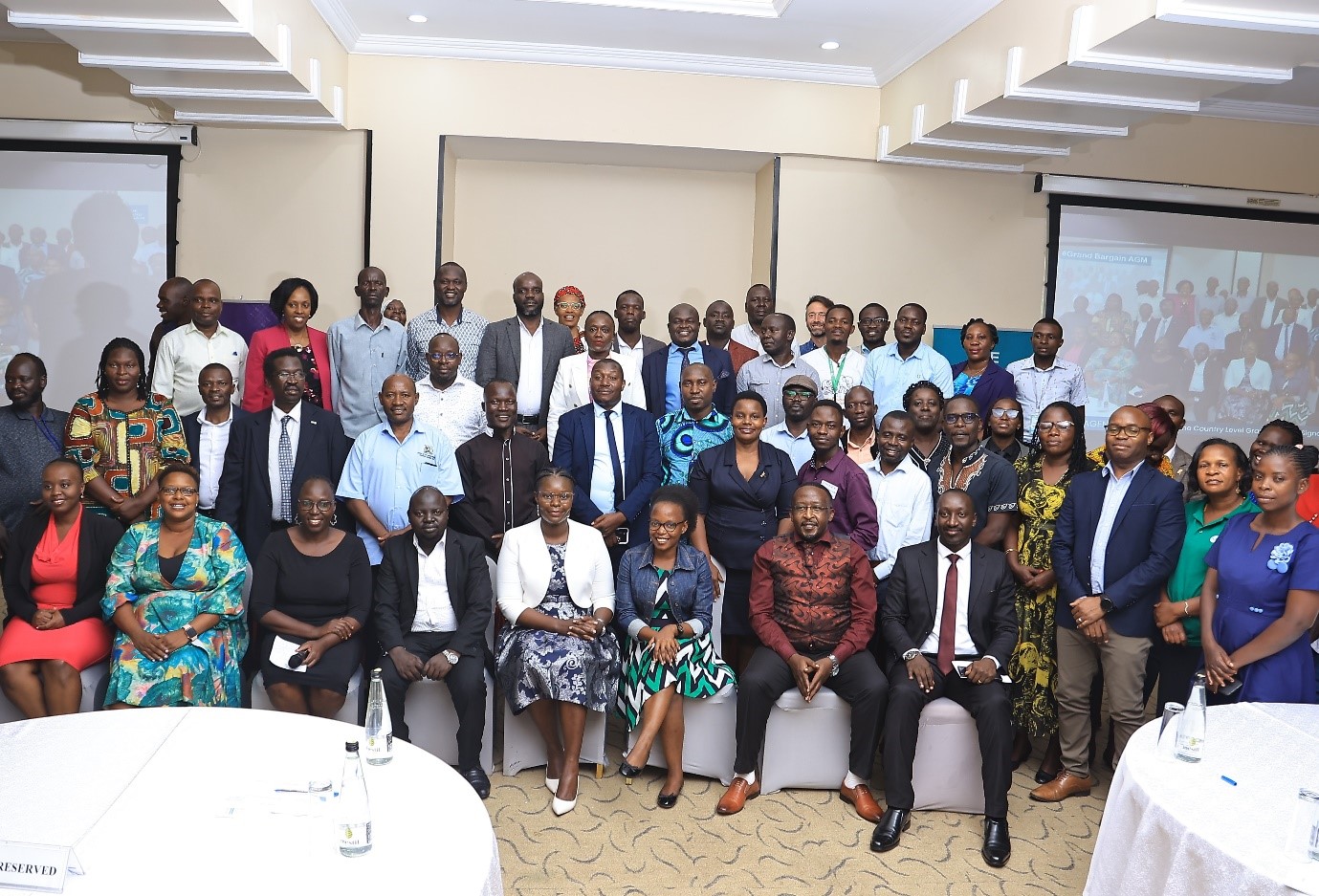
Localizing Humanitarian Action: Insights from Uganda’s Grand Bargain Annual Country-Level Meeting
September 11th, 2024, Mestil Hotel, Kampala – The Grand Bargain Annual Country-Level Meeting in Uganda gathered government officials, donors, UN agencies, international and local NGOs, and community representatives to reflect on the achievements and challenges of advancing localization efforts and equitable partnerships within humanitarian action.
The Grand Bargain, launched in 2016, aims to enhance the efficiency and effectiveness of humanitarian aid through improved coordination, reduced administrative costs, and direct support to communities affected by crises. In Uganda, the Grand Bargain’s principles have been embraced at the national level through the establishment of the Grand Bargain National Reference Group (NRG) in 2023. The NRG is spearheaded by the Uganda National NGO Forum (UNNGOF) and Charter for Change (C4C) to ensure meaningful engagement of local actors in humanitarian response.
The meeting kicked off with a warm welcome from Mr. Ronald Matanda, a representative from UNNGOF, who recognized participants from across Uganda and online attendees, including local NGOs, government agencies, and community-based organizations. Mr. Matanda stressed the importance of this annual meeting, noting that it was an opportunity for stakeholders to engage directly and discuss ways to fulfill the commitments made under the Grand Bargain framework.
Localization and the Role of the National Reference Group
Mr. Stephen Wamono, Chairperson of the NRG, provided an overview of the Grand Bargain and highlighted its role in promoting fairness and equity in humanitarian funding. He noted that the Grand Bargain’s focus areas—localization, participation of affected communities, and quality funding—are vital for addressing the humanitarian financing gap. “Localization is about transferring leadership and decision-making to local actors. It allows for more immediate and contextually relevant responses to crises,” he explained.
Mr. Wamono emphasized the need for more direct and predictable funding to local and national responders and urged international partners to honor their commitments, such as allocating 25 percent of global humanitarian funding directly to local actors. He highlighted that the NRG in Uganda, established in March 2024, has a governance structure led by ambassadors across three sectors, supported by the facilitation group and a secretariat to coordinate activities at the national level.
“We want to see meaningful engagement between local actors, international humanitarian actors, and decision-makers,” Mr. Wamono urged. “Our goal is to facilitate and cascade Grand Bargain discussions at the national level and monitor progress on priorities in Uganda.”
A Call for Equitable Partnerships
In a keynote address, Honorable Minsa Kabanda, Minister for Kampala Capital City and Metropolitan Affairs, representing the Third Deputy Prime Minister, Hon. Lukia Isanga Nakadama, emphasized Uganda’s commitment to building a sustainable humanitarian policy and response framework. She noted that Uganda’s efforts, such as the National Disaster Risk Framework and the self-reliance refugee policy, empower local actors to take ownership of humanitarian responses.
“The resilience of our communities depends on ensuring that local actors are at the forefront, not only as implementers but as decision-makers,” she said. “This framework forms the foundation for long-term recovery and resilience, linking humanitarian action to broader development goals.”
The Minister encouraged all stakeholders to strengthen partnerships, avoid duplication of efforts, and optimize resources to ensure that aid reaches those in greatest need. She expressed appreciation for the NRG’s role in fostering the humanitarian-development nexus and reaffirmed Uganda’s ongoing commitment to creating a sustainable and inclusive humanitarian system.
Presenting the Local Actors’ Statement
Ms. Joyce Julian Acoko, Chairperson of C4C, delivered the Local Actors’ Statement, reflecting on the progress made since the 2016 World Humanitarian Summit (WHS). “Many donors were already practicing localization unknowingly prior to the WHS. Localization is about leveraging local knowledge and resources for sustainable solutions,” she remarked.
Ms. Acoko outlined the eight commitments of C4C, including direct funding to local actors, capacity building, and equality in decision-making. She noted that in Uganda, significant strides have been made in promoting localization, such as the formation of regional humanitarian platforms in Acholi, Western, and West Nile regions, and capacity-building initiatives led by C4C’s working group.
“When you partner with local actors, your investment will be sustained,” she stated, emphasizing the value of supporting local organizations. She called for a continued push to enhance transparency and engagement between local and international actors, urging all stakeholders to align their operations with the Grand Bargain’s principles.
Panel Discussions: Localization and Quality Funding
The meeting featured two panel sessions that dived into the key themes of the Grand Bargain: localization and quality funding. The first panel focused on the importance of establishing equitable partnerships. Panelists discussed best practices for joint proposal writing, the impact of local actors on response efficiency, and the need for mutual respect and capacity strengthening. The second panel explored flexible and multi-year funding approaches. Panelists shared insights on the benefits of long-term and unearmarked funding for sustaining local actors’ operations. A common sentiment expressed was the need for donors to trust local organizations to lead interventions and manage funds independently.
“Donors must shift their perspective from seeing local organizations as mere implementers to recognizing them as equal partners,” emphasized one panelist from a local NGO.
Moving Forward
The meeting concluded with commitments from donors and international organizations to continue supporting the Grand Bargain priorities. Representatives from the Ministry of Local Government reiterated the government’s readiness to collaborate with all stakeholders in building a more inclusive and resilient humanitarian system. In her closing remarks, Ms. Acoko reminded participants of the significance of direct engagement and urged everyone to maximize opportunities for dialogue and joint action.
The Grand Bargain Annual Country-Level Meeting in Uganda set the stage for renewed collaboration and shared responsibility, marking a significant step forward in advancing the localization agenda and ensuring that the voices of local actors are heard and acted upon.



